The reasons to discover gardens, parks, and arboretums in our country are numerous: besides a green escape often close to home, or much further away when travelling, gardens provide opportunities for often surprising encounters and inspire us as each garden is unique. A journey into the infinitely green, from which we emerge with valuable advice and ideas. The diverse typologies transport us from the French garden to the English landscape park or the Japanese and exotic gardens.
Why is it so important to visit gardens? I will elaborate in this short article and provide some tips on how to find and visit them at the right time.
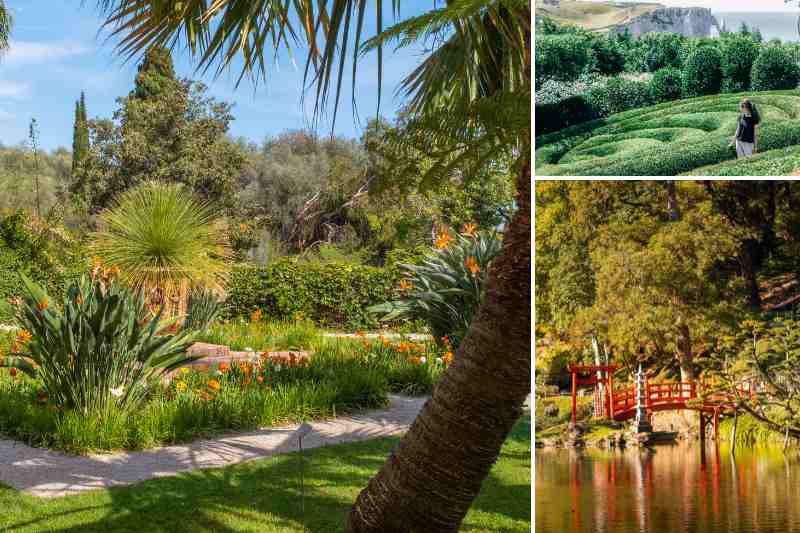
For the tranquillity they provide
Gardens, like forests, are places where we disconnect from our daily lives. The greenery, scents, and sounds allow us to escape and bring us peace. Their tranquillity offers immediate relaxation, which often lasts for the rest of the day!
For the beauty of gardens
What could be more delightful than wandering through gardens where everything is designed for the pleasure of the eyes? Visiting gardens, whether they are parks, plant gardens, botanical gardens, arboretums, public gardens, or private gardens, allows us to see plants that we may not necessarily cultivate at home. It is an opportunity to learn more about the vast world of plants and to marvel at the interplay of colours and the art of combining them.
Even if our own gardens are often smaller, visiting gardens provides us with insights into creating our own little green paradises. Visiting gardens nearby also helps us better understand the plants that thrive locally in our regions and how to showcase them.
All the plants are lovingly cared for, expertly maintained by dedicated teams in public gardens and by passionate gardeners who often conduct the tours themselves.
Strolling through a harmony of greenery, blooms, and fragrances, awakens all our senses and allows us to leave after one, two, or three hours of visiting with images in our minds, having recharged our batteries…
If we visit gardens in a completely different region, or even another country, we discover a different flora, very refreshing, sometimes translatable to another climate.
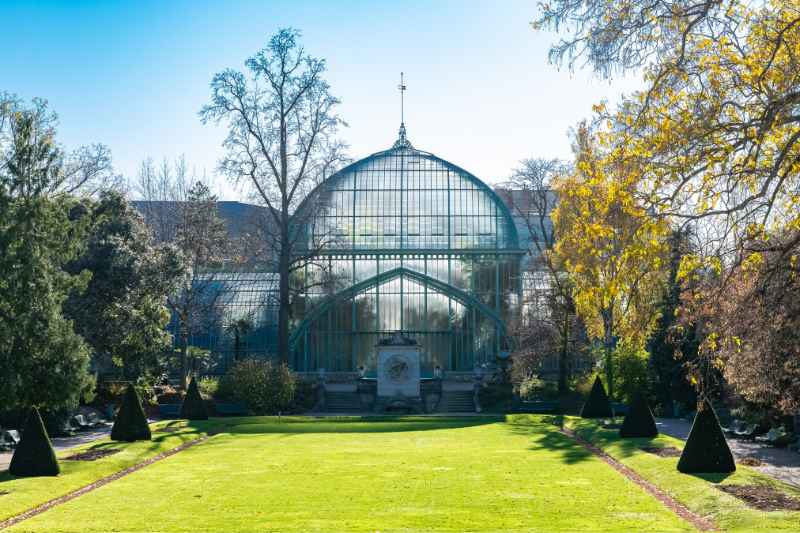
For the encounters we make
When visiting a private garden, you are not only exploring an extraordinary living space, but you also meet its owners who have often spent decades shaping their garden. It has thus become a place that reflects their personality, conducive to visits, but this process goes further, allowing for a moment of sharing with each visitor.
Some gardeners accompany you throughout the visit, explaining why they made certain choices of plants, how they have expanded the spaces over the years, while others prefer to step back and let you explore the garden freely, reuniting at the end for a friendly debrief.
Most of the gardens I have visited have sparked fascinating discussions… among passionate people! It is this human connection that I find, beyond the gardens themselves, admirable: in public gardens, gardeners are always available, pausing their work for a few minutes to enlighten you about a flower, tree, or bush you may not know, to talk about their work, or to explain the plantings the team is busy with.
In a private garden, we share tips about good nurseries in the area that we may not know, as they are a bit further from our usual circles, we discuss gardening associations we frequent, we talk about our cultivation issues with certain plants, we exchange ideas on current pruning… in short, we pass on a wealth of information and recreate the world around this environment that amazes us so much.
And when, as happened when I visited Mireille's garden, the visit stretches on, it can even lead to beautiful friendships between one-time visitors…
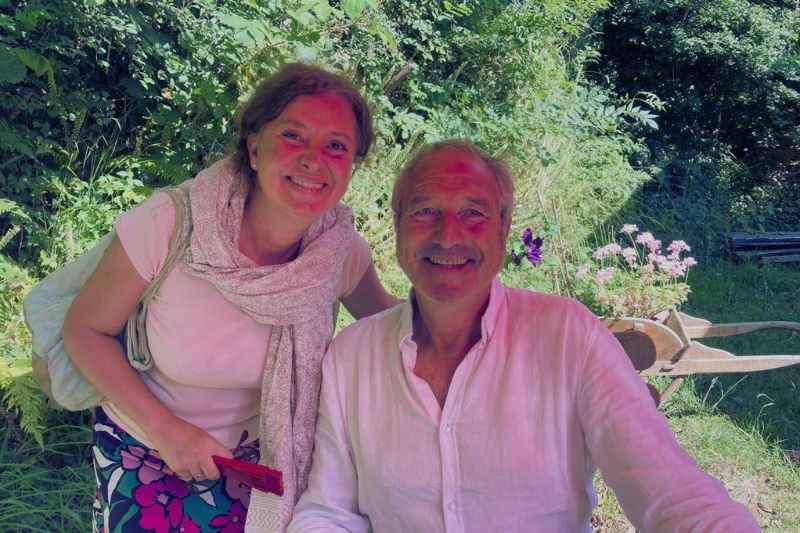
For inspiration
Visiting gardens is also stepping into worlds where creativity is often at play. Whether in a public or private garden, the arrangements are always a source of inspiration: the interplay of plant associations, of course, their colours, forms, and textures, the shape of the beds, the integration of a wet area, but also ideas to pick up along the way such as homemade path borders made of stones or wood, decorative ladders, cute tipis, treehouses, beautifully showcased vintage furniture, and much more.
Just for these delightful finds that enchant the DIY enthusiast within us, it is worthwhile to visit a garden!
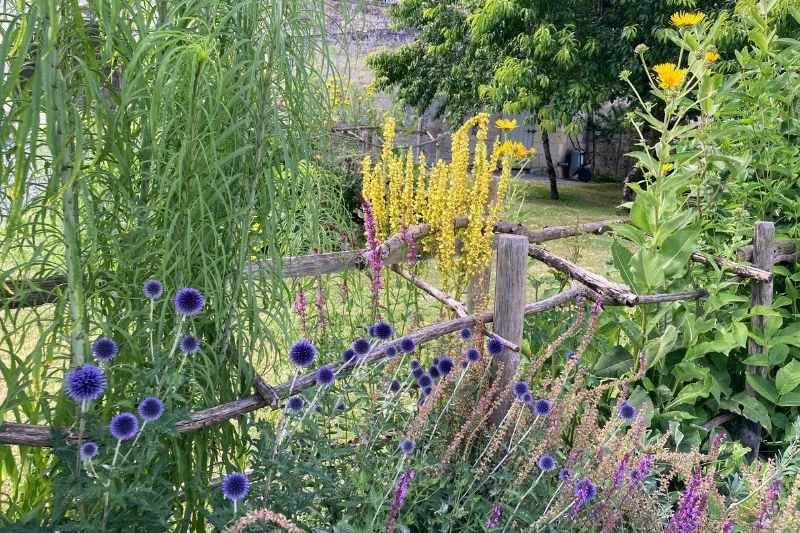
The best times to visit gardens
Most gardens open for visits in France from April to October, a peak period for many plants, with some (rare) open all year round, particularly public gardens and plant gardens. January and February are generally months when gardens take a break from visits, but it is always advisable to check in advance on their websites to avoid disappointment (I experienced this myself this summer with a private garden that closed mid-July to reopen… next spring; my disappointment was great).
Of course, gardens featuring primarily acidic soil plants with azaleas and rhododendrons are best visited in April and May, while romantic gardens overflowing with roses are best between May and June, and grass gardens like Jardin Plume or gardens featuring many autumn foliage and maples are best visited at the end of the season, around October.
In France and Europe, do not miss the European Heritage Days, which provide an opportunity to discover certain gardens that open only for this occasion. They take place on the third weekend of September each year, for the past forty years! A filter with the word "garden" on the Ministry of Culture's website allows you to select only the gardens offering visits (free or guided, paid or free).
The other key moment, and certainly the most popular for visits, is June, a blessed month in our northern hemisphere for floral richness at this time of year. This is why the French Rendez-vous aux jardins!, the botanical counterpart of the heritage days, takes place over three days (with Friday traditionally reserved for schools), every first weekend of June. Initiated by the Ministry of Culture 21 years ago, the garden weekends propose a different theme each year and are promoted by the DRAC of each region. More than 2000 gardens now open their doors in France. After "the five senses in the garden" this year, the next edition in 2025 will take place from June 6 to 8 and will focus on the theme 'stone gardens - gardens of stone'.
Finally, a little earlier each year in May, do not miss the Open Gardens for Neurodon: the Federation for Brain Research organises a weekend to raise funds for research. This mainly concerns gardens in western France and Languedoc-Roussillon, but also a few others (more information and the map of gardens in this link), at a very accessible price.
How to find open gardens to visit in my department or region?
The advantage of gardens is that every city has at least one green space of interest. In the countryside, you often have access to gardens or vegetable patches just a few kilometres from home. Even if they are well-known, here are some useful sites to find beautiful gardens to visit near or far:
- The remarkable gardens: these are gardens labelled for their remarkable elements, particularly historical, botanical, and their plant heritage. There are many in most departments of France and overseas. There are nearly 480 in mainland France and overseas territories, and about thirty in Belgium (Wallonia). There is plenty to explore!
- Another option is the eco-garden labelled gardens committed to ecological management of green tourism.
- Gardening associations, park and garden associations, and horticultural societies are well-known and offer, for a modest membership fee, several garden visits throughout the year (in addition to a generally very interesting programme). Research online by typing "gardening associations" or "gardeners' associations" along with your department, and you will find gardens that may be unknown to you. Each region has gardening associations where many volunteers are active. Discover those in your department. For the Pays de la Loire, there is ASPEJA, which organises many activities including garden visits, as well as the JASPE association that brings together gardens from Sarthe and Mayenne, and other gardening associations in smaller municipalities (visit your town hall or its website to learn about all the associations!).
- The local press is a treasure trove for finding gardens to visit. Articles can help you discover more confidential gardens, often private gardens, true gems.
- Do not hesitate to visit tourist offices when you are travelling in France: they all have brochures and leaflets on the most beautiful gardens in the area.
- Some nurseries offer, in addition to their range of plants, beautiful trial or experimental gardens showcasing the plants they produce. Here in Anjou, I particularly like the one at Plantagenet nurseries, and in Morbihan, the nursery of Prahor. Inquire at nurseries in your region.
- It is worth noting that more and more gardens are accessible to people with reduced mobility, often with adapted paths, albeit a bit more restricted. Therapeutic gardens are beautiful places, particularly designed for people with disabilities.
At Promesse de fleurs, we provide you with monthly ideas for garden visits in our blog section: Garden visits, gardener portraits! It is constantly updated with visits conducted by our editorial team. We highlight beautiful gardens that are well-known in France and abroad, as well as more confidential gardens that also deserve a visit.
And you, what are you doing next weekend?






























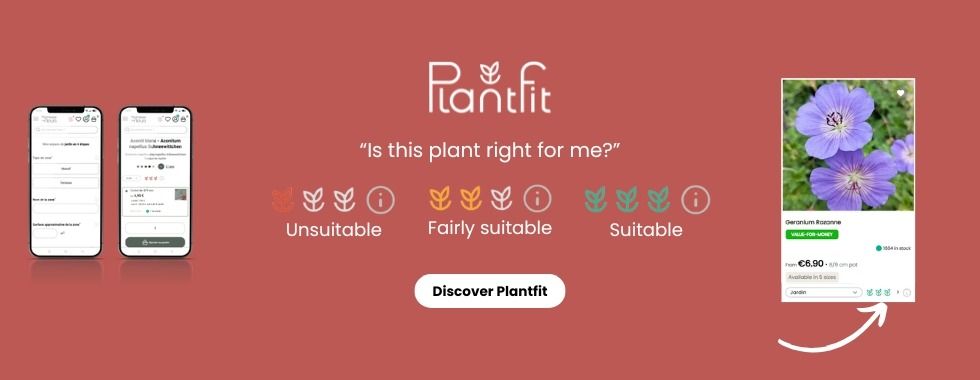
Comments